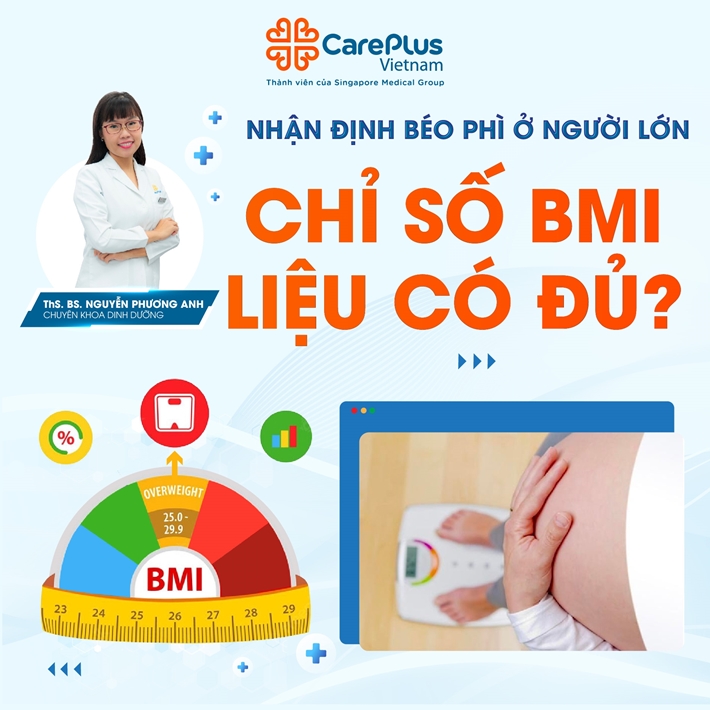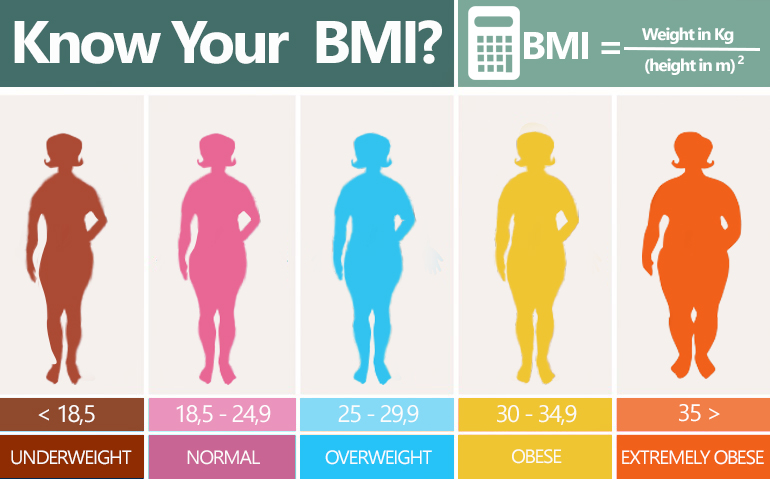Is BMI enough to determine obesity in adults?
The body mass index (BMI) is a measure that uses your height and weight to work out if your weight is healthy. The BMI calculation divides an adult's weight in kilograms by their height in metres squared. For example, A BMI of 25 means 25kg/m2.

8/24/2023 4:21:16 PM
You probably know the term BMI - Body Mass Index, which is widely used today to measure and assess the physical condition of a person. The BMI index includes parameters such as height, weight, shape to give the result that you are overweight, obese or malnourished or balanced.
The way to calculate BMI is quite simple. You just need to divide your weight by the square of your height to get the result. The assessment of BMI depends on the anthropological factor. For Asians, the BMI parameters for a person are as follows:
-
BMI < 18.5 is underweight.
-
BMI ranges from 18.5 -> 24.99 is normal.
-
BMI ranges from 23 -> 24.99 is overweight.
-
BMI > 25 is obese.

For example: BMI of a person with a weight of 65 kg and a height of 1.6 m is calculated as follows BMI = 65 / (1.6 x 1.6) = 25.4 kg/m2. Thus, this person is determined to be obese because BMI ≥ 25 kg/m2
However, the limitation of BMI is that it does not measure the body components of fat mass, muscle mass, bone mass and water mass. The weight used in BMI is the total mass of the four components above.
Whereas obesity is the condition of excess fat mass that adversely affects health and to determine obesity, the use of body fat percentage is more accurate. Therefore, BMI often determines the wrong deviation of obesity in the following two common cases:
-
A person with a BMI in the obesity range but with a normal body fat percentage, such as bodybuilders with high muscle mass;
-
A person with a BMI in the normal range but with a high body fat percentage.
Therefore, the simple BMI index may not be enough to determine obesity, but it needs to be combined with body composition measurement, anthropometric tests and in-depth medical standard diet to accurately assess your physical condition.
With the Overweight - Obesity Nutrition Examination package at CarePlus, which is designed with all the standard specialty categories to assess the body condition. Based on the results of the anthropometric, diet, clinical and subclinical assessments, the nutritionist will advise you on personalized nutrition, including the menu and exercise regimen suitable for your health condition according to medical standards.